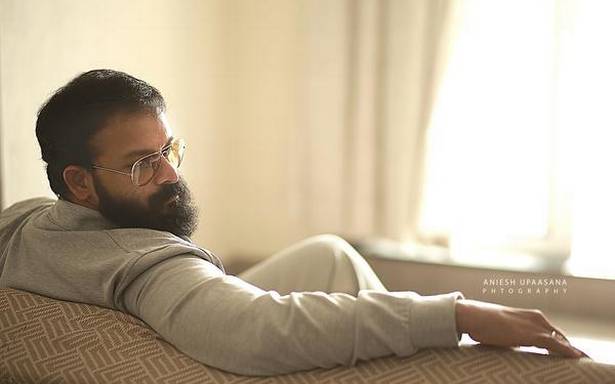Jayasurya talks about playing an alcoholic in his film Vellam, which hits theatres later this week
Jayasurya rates his role in Malayalm film Vellam: The Essential Drink among his challenging ones, and there are two reasons for that. “I do not live in Kannur and I do not drink,” he says referring to his character in the film. The Malayalam film, the first to be released in theatres since lockdown, is about an alcoholic who loses everything to addiction and later reforms himself to reclaim all that he has lost.
When the actor who has effortlessly portrayed a myriad characters; a paraplegic (Beautiful), the menacing villain Angoor Rawther (Iyobinte Pusthakam), the pervert Abdu (Trivandrum Lodge), a sick man (Apothecary), a man who overcomes a speech disorder (Su..Su..Sudhi Vathmeekam); and a transgender person (Njan Marykutty), says that about addiction, it makes one sit up and ask why.
“I have ‘been’ an alcoholic before, but Lukka Chuppi’s Raghuram was very different; he was sophisticated. Vellam Murali [of Vellam] is not like that; he is a complete drunkard and irresponsible. The root problem may be the same but all alcoholics are not the same. That had to be brought in. Then there was the Kannur dialect… It was not easy being a drunkard while speaking a completely different dialect when the recording was sound sync,” Jayasurya explains. That role in Lukka Chuppi and Su..Su.. got him a Special Mention at the National Awards (2016) as also Kerala State Government’s Special Jury Award.
A still from Vellam | Photo Credit: Special arrangement
Vellam, inspired by a true story, is his second collaboration with director Prajesh Sen; their first film together was Captain, the biopic based on the life of the late VP Sathyan, former captain of the Indian football team. It, along with Njan Marykutty, got Jayasurya the State Award for Best Actor (2018). “This (Vellam) is the kind of story that needs to be told. All of us would know someone like Murali. Some stories resonate with people; I am sure this will and they will take away something from it.”
The ‘takeaway’ is the reason he has done a clutch of films inspired by real life stories. His earlier flick Njan Marykutty, for instance, directed by Ranjith Shankar, was a nuanced take on a transgender person, Marykutty’s life.
Shankar is another regular collaborator with whom Jayasurya has made more than five films. “It is the creative comfort of working with some people. I can discuss any ‘madness’ with them and we understand each other’s craziness. It is about knowing the extent to which I can go, pushing my boundaries as an artist. These people understand my capability perhaps more than even I. They have faith that I can do a particular role,” he says.
Jayasurya seems to have shifted gears around 2010-11, with films such as Cocktail and Beautiful. His roles get complex and layered, “I wasn’t interested in the easy roles. If I can become a different person with every film, very different from the kind of person I am…then why not? The world remembers the character, not the actor. Immortal characters are remembered, not so much the actors.”
For him, what he plays is more important than screen-time or whether it is the lead character. “I wouldn’t have done Iyobinte Pusthakam or Apothecary if that was my concern. I want characters that push me to tap myself.”
The versatility of his choices leads to the question of his process. Labels are superfluous, “What is method or instinctive acting? No actor can act without thinking, there could be a ‘personal’ method. Vellam means water, which takes the shape of whatever it is poured into. An actor should be as fluid as that.”
Jayasurya’s film Sufiyum Sujathayum (2020) was the first Malayalam movie to release on an OTT platform and now Vellam, the first theatre release post-lockdown.
Does he prefer OTT or theatre?
“Definitely theatre. Every actor and director or technician wants to see their film on the big screen unless it is specifically made for an OTT platform. Sufiyum… was to be a theatre release. However, when a producer’s investment is at stake; it is his call finally. As an actor, once my job is done, I don’t have a say. The nuances of acting and the details of the locale show up better on the big screen. After all, watching a film on screen is the whole point.”
Source: Read Full Article


